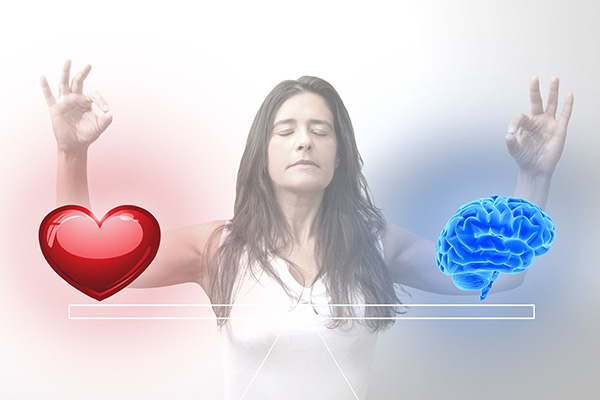emotional responses
Why Do Empaths And Sensitives Often Feel Drained?
 Have you ever left a meeting or social gathering feeling completely drained or energetically depleted?
Have you ever left a meeting or social gathering feeling completely drained or energetically depleted?
Or maybe you’ve walked out of a store or other public place and noticed that you were short with your loved ones and irritable? Or you come home in the evening feeling sad or depressed for no apparent reason, after starting the day feeling cheerful and happy?
If this happens to you often, it is very likely that you are an empath or a highly sensitive person.
Empaths and highly sensitive people (HSPs) often feel drained by other people, social gatherings, crowds and certain environments due to several key aspects of their inherent nature and the way they interact with the world around them. Here are the major reasons for this phenomenon:
Genetic predisposition: Research suggests that the trait of high sensitivity is influenced by genetic factors that affect how individuals process sensory information and emotional stimuli. A key aspect of this genetic influence is the way the brain processes serotonin, a neurotransmitter that helps regulate mood, appetite, sleep, and sensory perception. Variations in genes related to the serotonin transporter have been linked to differences in emotional reactivity and sensitivity to the environment. Studies have shown that individuals with certain variations of these genes may exhibit traits consistent with high sensitivity, such as deeper cognitive processing of sensory information, higher emotional reactivity, and increased empathy.
Anger Awareness For The Empowered Empath
 Of all the emotional energies that empaths have to deal with, anger is one of the most powerful and potentially destructive, because empaths feel and react first, and think later.
Of all the emotional energies that empaths have to deal with, anger is one of the most powerful and potentially destructive, because empaths feel and react first, and think later.
An empath’s initial reaction to someone else’s angry feelings is usually some form of intense “fight or flight” response.
The more extroverted empath will often respond to the anger with equal force, usually involving a very intense and potentially catastrophic emotional outburst. The introverted empath will usually “flee” the scene or do everything possible to avoid the person who is emitting the anger.
After the initial reaction, the empath’s emotional state will often then shift to sadness, anxiety, or feeling drained and depressed at seemingly inappropriate times and for no apparent reason.
Because it is very common for empaths to be intensely aware of the feelings, moods, and motives of others, sometimes even before others are aware of their own feelings, a strong emotion like anger deeply affects us. And if the other person is a spouse or partner in a romantic relationship, anger can become a proverbial land mine. Ditto if it is a co-worker or employer.
Embracing The Gift Of Empathic Insight
 Being attuned to the emotional energies of others is a beautiful gift that many spiritual individuals discover and enhance along their spiritual journey. This gift facilitates connection with others and provides insights into both others and ourselves.
Being attuned to the emotional energies of others is a beautiful gift that many spiritual individuals discover and enhance along their spiritual journey. This gift facilitates connection with others and provides insights into both others and ourselves.
While this empathic ability can bring profound understanding, it can also lead to anxiety. Feeling others’ emotions deeply may prompt self-reflection, causing concern about the impact of our actions on others and fear of judgment. Societal pressures become more intense, especially when expressing unconventional opinions, making those on a spiritual path feel isolated or misunderstood during a spiritual awakening.
How can we balance this empathic insight with personal expression and development?
Navigating meaningful relationships becomes challenging as our perspectives expand. Striking this balance requires self-reflection and working towards a more whole and heart-centered way of living.
Maintaining an open mind while expressing our own understandings is like a tightrope walk. We don’t want to become closed-minded, yet we need to articulate our perspectives and advocate for what we believe is right. A spiritual life is a journey of constant growth and understanding. Plateaus and challenges are part of the path, requiring breakthroughs to overcome.
How To Beat The Holiday Blues This Year!
 The holidays can be a very difficult and depressing time for some people. It can trigger unresolved emotions from childhood, unhealed trauma from past relationships, or unfinished grief from lost loved ones.
The holidays can be a very difficult and depressing time for some people. It can trigger unresolved emotions from childhood, unhealed trauma from past relationships, or unfinished grief from lost loved ones.
It can also make you feel more lonely, disconnected, and isolated than usual.
Especially for people struggling with existing mental health conditions such as anxiety or depression, their symptoms may worsen during the holidays due to increased stress, social demands, and cultural triggers.
But there are ways to beat the holiday blues and overcome sadness, depression, or low spirits during “the season to be jolly.” There are ways you can take back your power and improve your mood and overall well-being.
First, it is necessary to determine what is causing you to not feel the holiday cheer that everyone else seems to be experiencing.
Several factors can contribute to negative, gloomy thoughts and feelings during this time of year. A common trigger for many of us is that mainstream holiday traditions tend to emphasize spending time with loved ones and family, which can exacerbate feelings of loneliness for those who are socially isolated or have lost loved ones. This isolation can be particularly acute for those of us who live far from family or have strained relationships with them.
Navigating Loneliness During the Holidays
 The holiday season is traditionally portrayed as a time of togetherness, love, joy, and belonging. We are inundated with media images of families gathered around a festive table, friends celebrating, and communities coming together.
The holiday season is traditionally portrayed as a time of togetherness, love, joy, and belonging. We are inundated with media images of families gathered around a festive table, friends celebrating, and communities coming together.
Paradoxically, for many people, this time of year is instead filled with feelings of loneliness, isolation and disconnection.
The root cause is the societal stereotype and cultural assumption that everyone should be joyful, happy, and surrounded by loved ones during the holidays. If you’re not, for whatever reason, it can lead to feelings of inadequacy, isolation, and social failure.
Holiday loneliness is exacerbated by the stark contrast between our actual circumstances and the commercially driven, idealized versions of holiday gatherings and celebrations we see in advertisements, television shows, movies, and social media. This increases feelings of disconnection, low self-esteem, and even depression.
Loneliness during the holidays can have a significant impact on mental health. Feelings of isolation and disconnection during this time of year can exacerbate existing mental health issues and lead to the development of new ones. The constant reminders of togetherness and joy, combined with a lack of social connections and meaningful interactions, can increase feelings of loneliness, leading to emotional distress, feelings of emptiness and hopelessness, and a decline in overall well-being.
The Constant Battle Of Head Versus Heart
 Have you ever second-guessed yourself, done or said something that went against your gut, only to realize in retrospect that your initial feeling or hunch was right? Had you acted differently, it could have saved you a lot of heartache and loss, emotionally, physically or financially?
Have you ever second-guessed yourself, done or said something that went against your gut, only to realize in retrospect that your initial feeling or hunch was right? Had you acted differently, it could have saved you a lot of heartache and loss, emotionally, physically or financially?
If you have ever been in this position, know that you are not alone. The “head versus heart” dilemma can be very confusing and frustrating. Many of my clients struggle with it and some experience a great deal of confusion, stress and emotional discomfort as a result.
When faced with difficult decisions or challenging situations, we usually have a good sense of what the best course of action might be. But then we tend to look for concrete evidence to support our feelings and intuitive hunches, and when we cannot find any, which is often the case, our heads take precedence over our hearts. So we end up discounting our feelings and intuitions, usually to our own detriment.
The struggle between head and heart is a common theme in philosophy, literature, art, and popular culture, as we all regularly experience inner conflicts between reason and emotion, logic and intuition, responsibility and passion.
Our Choices Are Ours To Make
 The past few years have been challenging for everyone. The pandemic, political upheaval, and economic uncertainty have affected lives all over the world.
The past few years have been challenging for everyone. The pandemic, political upheaval, and economic uncertainty have affected lives all over the world.
I have personally witnessed the pain and struggles of many people close to me, as well as my clients.
I even had to take a ‘mental vacation’ at times as I began to feel disoriented and somewhat confused by the messages the angels were giving me.
I asked the why’s with no clear answers. I’ve asked the how’s without sensible explanations. As a lightworker I tend to feel compelled to fix things, to make things better.
Then one day I had a breakthrough when spirit told me clearly that it is not my job to fix everything and everyone.
Spirit has led me to understand that my job is to spread love, light and healing to the best of my ability. How people choose to think, feel and act in response to their life challenges is not for me or anyone else to try to control. Everyone’s choices are theirs to make as they see fit, and with much choice comes much responsibility.
As heartbreaking and frustrating as it may be at times, it is not my place to interfere with other people’s karmic journey and soul plan. This newfound insight was jarringly confirmed by a traumatic event just a few weeks ago.